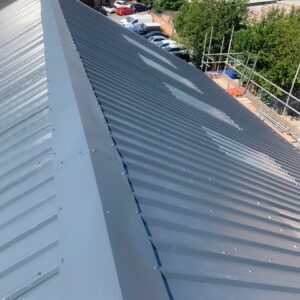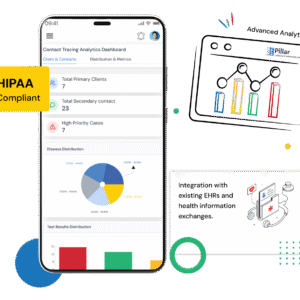In today’s quality-conscious market, compliance with Indian standards is crucial for manufacturers, importers, and distributors. BIS Certification, granted by the Bureau of Indian Standards (BIS), is a mandatory requirement for many products before they can be sold in the Indian market. If you’re operating in the capital city, understanding the process and importance of BIS Certification in Delhi is vital to ensure smooth business operations and legal compliance.
This blog will guide you through what BIS Certification is, who needs it, how to apply for it in Delhi, and how consultants like Indiannexus can assist you in obtaining it efficiently.
What is BIS Certification?
BIS (Bureau of Indian Standards) is India’s national standards body responsible for setting quality and safety norms across multiple product categories. BIS Certification ensures that a product complies with the Indian Standard (IS) for that category and meets quality, safety, and performance expectations.
There are mainly two types of BIS Certification schemes:
- ISI Mark Certification – For products manufactured and sold in India under Indian Standards.
- Compulsory Registration Scheme (CRS) – Mainly for IT and electronic products, applicable to both Indian and foreign manufacturers.
Why is BIS Certification Important in Delhi?
Delhi is a key hub for manufacturing, retail, e-commerce, and international trade. Many importers, suppliers, and electronic businesses operate in or through Delhi. If you are selling regulated products in Delhi, you are legally required to obtain BIS Certification to ensure product compliance.
Key Benefits:
- Legal Requirement: Avoid penalties, product seizure, or business disruptions.
- Market Access: Essential for participating in tenders, e-commerce listings, and retail distribution.
- Consumer Trust: BIS-certified products are perceived as safe and reliable.
- Brand Credibility: Certification improves brand image and market acceptance.
Products Requiring BIS Certification
More than 350+ products require BIS Certification in India, especially under the ISI and CRS schemes. Some of the major product categories include:
- Electrical appliances: switches, cables, motors, transformers
- Electronics and IT goods: laptops, mobile phones, power banks
- Kitchen appliances: gas stoves, pressure cookers
- Construction materials: cement, steel bars, water pipes
- Automotive components: wheels, brake linings, lighting
The product list is updated regularly by BIS and the Ministry of Electronics & IT (MeitY).
BIS Certification Process in Delhi
Whether you’re a manufacturer in Delhi or an importer selling in the Delhi-NCR region, the certification process involves a few structured steps:
Step 1: Identify the Applicable Standard
Check if your product falls under the mandatory list and identify the relevant Indian Standard (IS code).
Step 2: Product Testing
Get the product tested from a BIS-recognized lab. For CRS products, testing must be done before applying online.
Step 3: Application Submission
Register on the Manak Online Portal and fill in the BIS application form.
Step 4: Upload Documents
Submit key documents such as:
- Business license
- ISO Certificate (if available)
- Test report from BIS lab
- Brand Authorization (if applicable)
- Factory layout and location map
Step 5: Inspection (For ISI Scheme)
For ISI Certification, a BIS official may conduct a factory inspection to verify manufacturing processes and compliance.
Step 6: Grant of Certificate
Once verified, BIS issues a Registration Certificate or ISI License, allowing you to use the BIS Standard Mark on your product.
Documents Required for BIS Certification
To apply for BIS Certification in Delhi, you’ll need:
- Business registration proof (Company PAN, GST, etc.)
- Factory address and layout
- Test report from BIS-approved lab
- Authorized Indian Representative (AIR) details for foreign brands
- Technical specification sheet of the product
- Trademark or brand authorization letter
How Long Does It Take?
- CRS Registration: 20–30 working days (if documents and testing are complete)
- ISI Mark Certification: 30–60 working days (due to factory inspection)
Cost of BIS Certification
The BIS Certification cost in Delhi depends on:
- Product category
- Type of certification (ISI or CRS)
- Number of models/variants
- Lab testing charges
- Consultant fees (optional)
Generally, CRS certification is less expensive and quicker than ISI mark licensing.
Common Challenges Faced by Businesses
- Errors in selecting the right IS standard
- Delays in testing and documentation
- Confusion in online application
- Language barriers for foreign applicants
- Unawareness of product listing updates by BIS
To overcome these issues, many Delhi-based businesses prefer hiring a BIS consultant.
How Indiannexus Helps with BIS Certification in Delhi
Indiannexus is a trusted consultancy firm based in Delhi, offering professional services for BIS Certification, ISI Marking, and CRS Registration. We support manufacturers, importers, and distributors across Delhi-NCR and PAN India.
Our Services Include:
- Product applicability check
- Lab coordination and product testing
- Preparation and submission of BIS documents
- Liaising with BIS authorities
- Renewal and post-certification compliance
Whether you’re a start-up or an established enterprise, Indiannexus helps you get certified efficiently and affordably.
Conclusion
BIS Certification in Delhi is not just a compliance requirement but a strategic step toward market success. With growing scrutiny and competition, only certified products stand a chance in both B2B and B2C markets. If you’re dealing in regulated products, it’s essential to complete your BIS registration before launching or importing your goods.
With expert help from Indiannexus, you can streamline the process and avoid costly delays or rejections.







